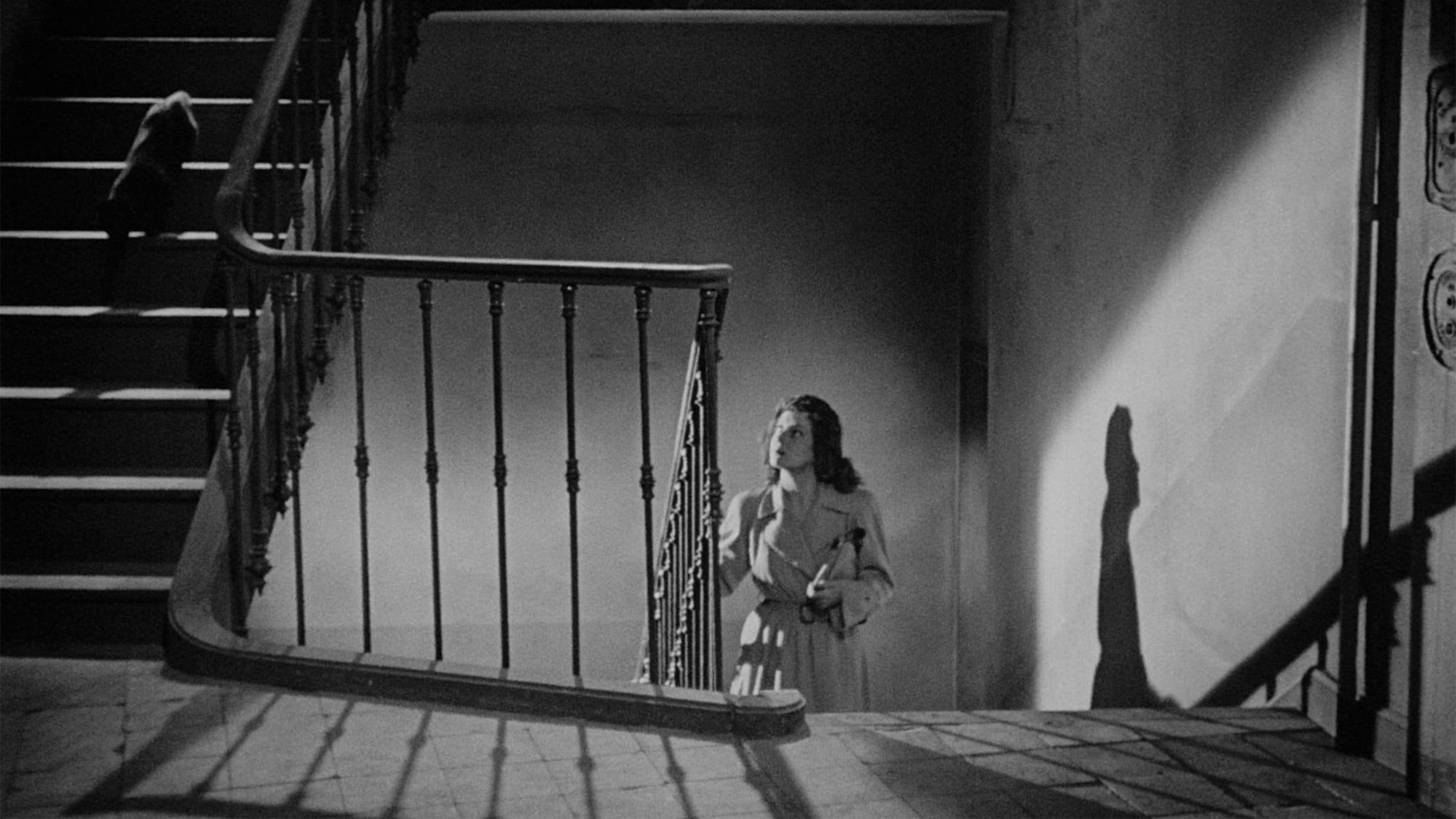RELATED ARTICLE
Eclipse Series 44: Julien Duvivier in the Thirties
What’s in a Name
The Criterion Collection

Half a century before Julien Duvivier made his 1946 film Panique, the French social psychologist Gustave Le Bon published his influential study of mob behavior, The Crowd: A Study of the Popular Mind, in which he argued that recent upheavals in scientific and religious belief and increasing urbanization made individuals more susceptible to a contagion of “impulsiveness, irritability, incapacity to reason.” He could have been describing Duvivier’s caustic portrait of his postwar compatriots, driven to collective barbarity by intolerance, suspicion, and rumor. Le Bon compared the state of the person under the excitable spell of the throng to that of “the hypnotized in the hands of the hypnotist,” though, ironically, in Panique it is Monsieur Hire the astrologist and mesmerist who is the victim of the murderous mob, the mechanism to spellbind clients that is found in his office used as evidence of the dark, perhaps demonic arts that he is reported to practice.
Panique was the first film Duvivier made upon his return from self-exile in Hollywood during World War II, an expatriation that was criticized at home as a form of cultural treason, especially when other directors, such as Robert Bresson and Marcel Carné, remained to make films during the occupation. (Henri-Georges Clouzot also stayed, and was later accused of collaboration and temporarily banned from filmmaking, in part because his poison-pen classic, Le Corbeau, had portrayed la France profonde as equally prone to mass irrationality.) The thorny, volatile Duvivier compounded this alleged betrayal of his nation by fashioning Panique as an admonition about neighborly fascism that exploited the immediate postwar aura in France of guilt, recrimination, and distrust. The director, who since emerging during the silent period had established a reputation for harsh appraisals of humanity—the studio compelled him to replace the pessimistic finale of La belle équipe (1936) with an upbeat one, much to his distress—claimed that he was merely reacting against the enforced happy endings of Hollywood, but the corrosiveness of Panique suggests a more perilous, perhaps punitive motive, especially when compared with the film’s source, Georges Simenon’s 1933 novel Mr. Hire’s Engagement.
Inspired by the Belgian author’s memory of witnessing, as a young journalist in Liège, a group of surly inebriates turn on a man they accused of being a German spy and chase the innocent onto a rooftop, baying for a “summary judgment,” Simenon’s slim novel serves as little more than an armature for Duvivier, and the many departures the director and his cowriter, Charles Spaak, make from the book in almost every case turn the tone from the merely mordant into the insistently acidulous. (Patrice Leconte’s later adaptation of the novel, 1989’s Monsieur Hire—with an ashen Michel Blanc living up to his last name as the eponymous voyeur—proved much more faithful to the tone and details of the Simenon.) A catalog of the divergences between page and screen might note that Simenon’s Hire is an erstwhile pornographer who landed in prison for six months, and his current vocation is as a mail scammer, as opposed to the film’s sham spiritualist—Hire as “Dr. Varga”—the latter deception more insidious in its implications, as his clients place great importance on his fraudulent advice. The novel’s Hire also appears more pathetic in his yearnings because the object of his spying and amour fou is the slovenly redheaded salesgirl at the dairy next door, rather than Viviane Romance’s glamorous jailbird, Alice. (Her boyfriend, Alfred, played by Paul Bernard, seems to compete with her allure, wearing as much lipstick in his close-ups as Romance, and performing his mechanic’s tasks in a natty ensemble complete with foulard.) Duvivier’s murder victim is a middle-aged, unmarried, “bighearted woman who gave to charities,” compared with the book’s anonymous young prostitute, and the filmmaker revels in the eradication of virtue, continually reciting a litany of Mademoiselle Noblet’s good deeds—even her surname signals her spinster’s dignity.

“For all the vehicular motion, back and forth, round and round, up and down, the prevailing aura in Panique is one of stasis and inexorability.”

